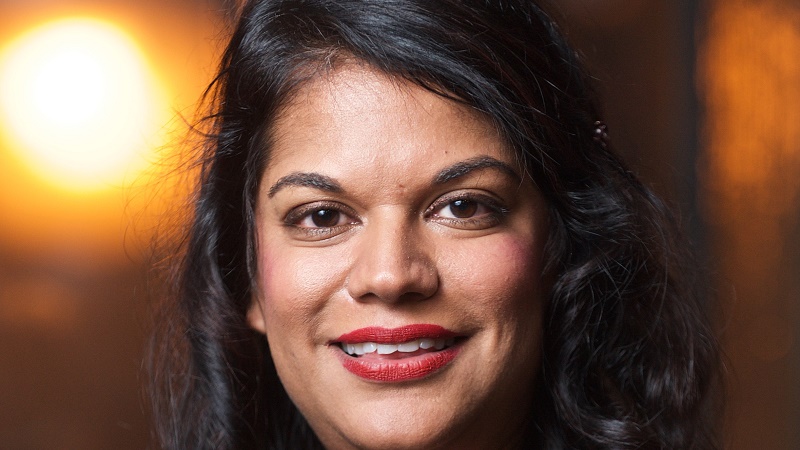The asset management industry’s gender pay gap is expected to be worse than last year, diversity network City Hive has cautioned.
In financial services only 71 companies (17%) have reported so far this year. Last year 424 firms were required to disclose their pay gaps.
While the average median pay gap in financial services is lower than last year at 20.6%, compared to 22.2%, the average median bonus gap is significantly higher at 28.3%, compared to 13.4% in 2018.
Heather Hopkins, managing director at Next Wealth said “the results are depressing” but notes it is based on a small number of reporting companies. “I hope the results will show a different picture when more companies report,” she said.
City Hive’s founder and chief executive, Bev Shah (pictured), is calling for far greater collaboration between and among firms and organisations within the investment industry, as she argues that acting alone is unlikely to achieve the necessary impact to address the gender pay gap and the wider factors that prevent progress.
Shah said: “A balanced workforce is good for business, good for customers, good for profitability and workplace culture, and increasingly attractive for investors.”
“For some time the same issues have been identified and acknowledged in authoritative, independent reports, but poor practice persists,” added Mandy Kirby, chief strategist and co-founder of City Hive.
“The old arguments about incremental change look increasingly weak. It is time to set a new, positive cycle of professional development and a global industry standard to reflect modern times. What we want to see now, is action.”
Ignoring diversity is poor business
City Hive will ring the opening bell of the London Stock Exchange on Monday, kick starting a week of celebrations to mark International Women’s day on 8 March, alongside Pictet Asset Management, Eaton Vance Investment Management, Hermes Investment Management, Janus Henderson and Mirabaud Asset Management, fund groups that are supporting its initiative for a more diverse industry.
“There are still huge inequalities that women are facing in the workplace, and financial services is one of the worst in terms of its gender pay gap and diversity,” said Hermes Investment Management CEO Saker Nusseibeh. “Women make up 50% of the population, it is simply poor business to exclude such a large portion of the talent pool. Whilst the asset management industry has made some progress, there is still a great deal more to be made.”
Hermes revealed its mean gender pay gap was 27% for 2018, down from 30.2% the year before. Its average pay gap has fallen more than other firms that have reported so far including Axa and Charles Stanley.
Nusseibeh added that the industry needs to “widen the pool of people” from which we recruit irrespective of specific qualifications, and create channels of growth which allows them to flourish over the long-term.
Janus Henderson chief financial officer Roger Thomas said: “We believe a diverse workforce, drawn from a variety of backgrounds, cultures and experiences, brings a better understanding of our clients and better informed investment decisions. We remain committed to our diversity and inclusion initiatives, which include raising gender-equality standards.”
Janus Henderson has yet to reveal its gender pay gap data.
Women need to get involved
Hopkins said it’s also up to women to step up and ask for better pay. She said: “The bonus gap is particularly disheartening and suggests to me that managers aren’t doing enough to balance bonus payment and women aren’t doing enough to ask for their fair share.”
Data shows men are more likely to ask for a pay rise and to make their ambitions known to management, she explained. “They also are better at making managers aware of their good work,” she said.
“Managers need to be better at being fair in the distribution of financial reward but women also need to put their hand up to ask for the reward they deserve. I can think of many times in my career when men have come to me to ask for a pay rise or to ask for a bonus for good work. I can think of far fewer cases of women asking for the same.”










